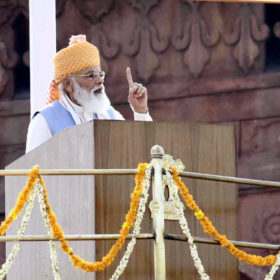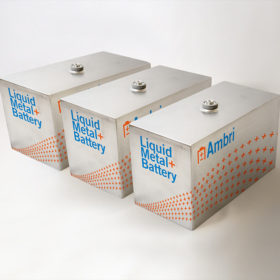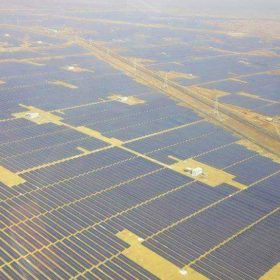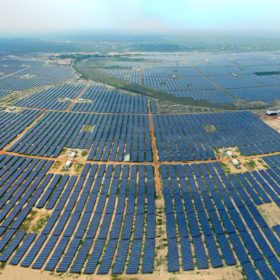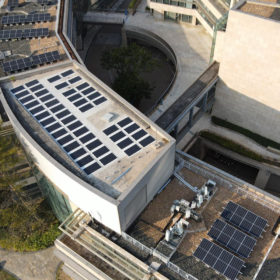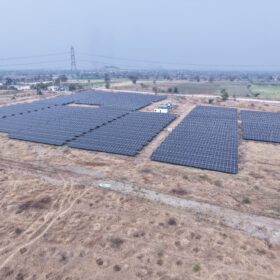ReNew Power to acquire 359 MW of solar, hydropower assets
The Haryana-based developer has agreed to acquire 260 MW of operating solar projects in Telangana and a 99 MW hydropower project in Uttarakhand for around INR 28.5 billion (US$ 384 million).
Sterling and Wilson Solar announces Q1 FY2022 results
The company’s revenue from EPC and operations and maintenance business stood at INR 1,195 crore, a 12% growth over the same period in the previous fiscal year. The gross margins remained suppressed owing to an increase in module and commodity prices.
Prime minister Narendra Modi announces National Hydrogen Mission
The prime minister said green hydrogen would play a significant role in achieving India’s decarbonization goals. He also announced the nation’s ambitions to become a global hub for green hydrogen production and export.
Azure Power issues US$414 million green bond at 3.575% coupon rate
The New Delhi-based independent power producer has issued its third green bond as it looks to raise US$414 million. The coupon rate is the lowest ever for any renewable energy company in India.
The substantial sustainability benefits of smart meters
Power generated by renewable sources and corresponding action taken by business layers is not predictable. So it’s imperative that the latest controls are leveraged in the service of smart grids.
Reliance New Energy Solar to invest in US-based liquid metal battery firm
The clean energy arm of Reliance Industries Limited will invest US$ 50 million in MIT-incubated Ambri. As part of the transaction the two companies will also partner to develop and manufacture liquid metal batteries in India.
Solar parks get off to a good start in India, but challenges remain
Large-scale solar parks will be key to India’s transition to clean and green energy. Such parks are already being built or planned in States like Gujarat, Karnataka, Madhya Pradesh, Rajasthan, and Uttar Pradesh. However, there is still scope for forward-looking and well-aligned policies across States to make the most of this global phenomenon.
APTEL orders compensation for solar curtailment in Tamil Nadu
The Delhi-based Appellate Tribunal for Electricity (APTEL) has directed Tamil Nadu State Load Despatch Centre (TNSLDC) and The Tamil Nadu Generation and Distribution Corporation (TANGEDCO) to compensate developers at 75% of PPA tariff per kWh on solar curtailment.
AC Energy, NEFIN partner to build rooftop solar projects across Asia
Philippines-based AC Energy, which operates 150 MW AC ground-mount solar plants in India, is joining hands with Hong Kong-based solar developer NEFIN to develop, construct, and operate rooftop solar projects across Asia.
Local solar will lead the energy transformation over the next five years
The adoption of local, community-based energy solutions like rooftop solar and batteries can help make the energy grid more flexible and reliable. Home solar and batteries will enable the growth of ‘prosumers’ who produce and share energy, as well as consume it.


